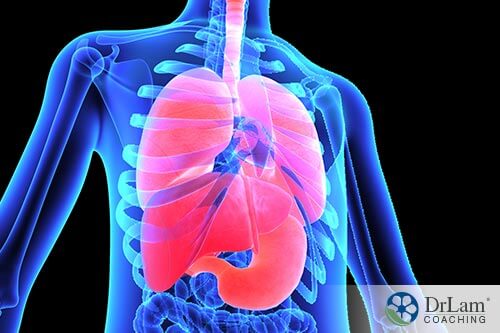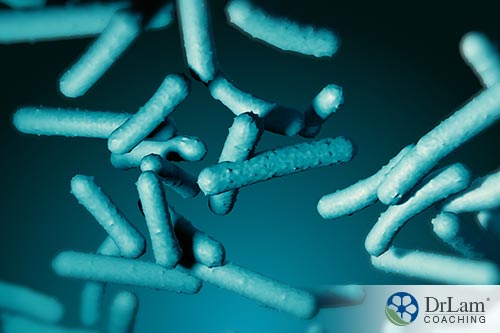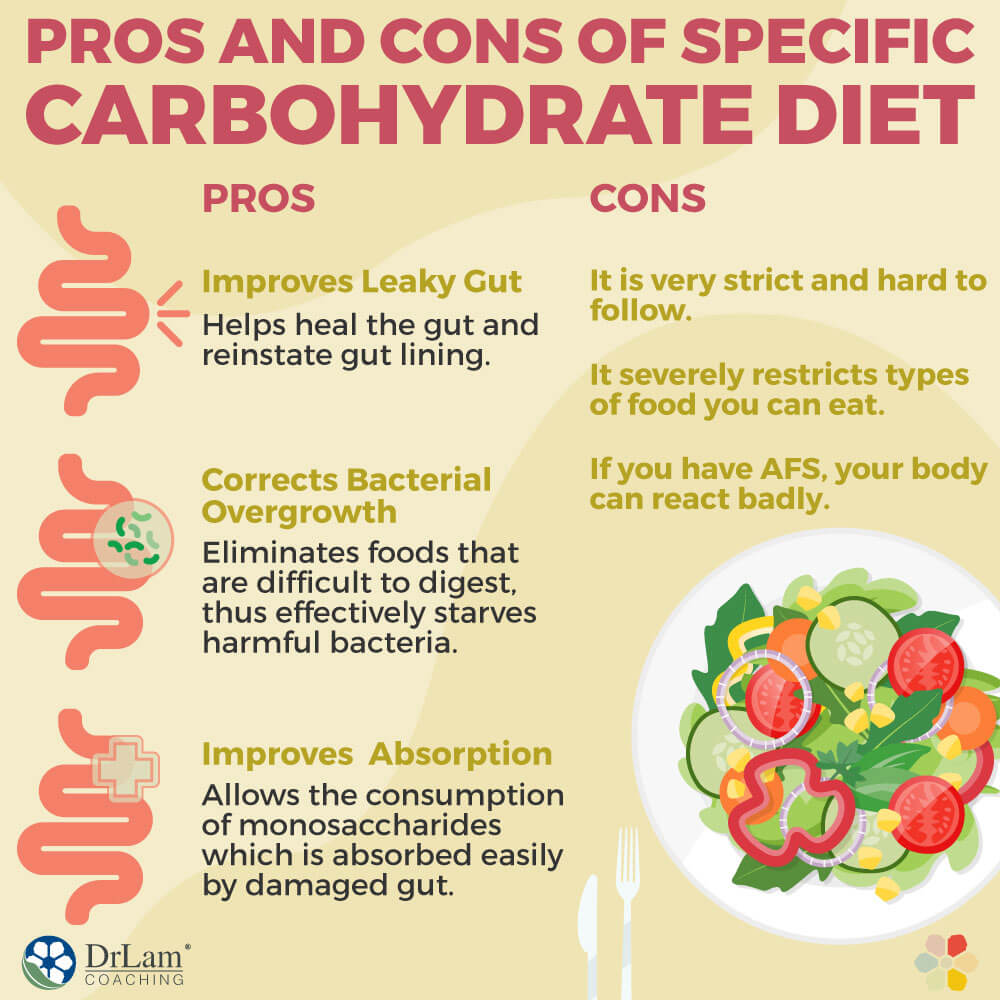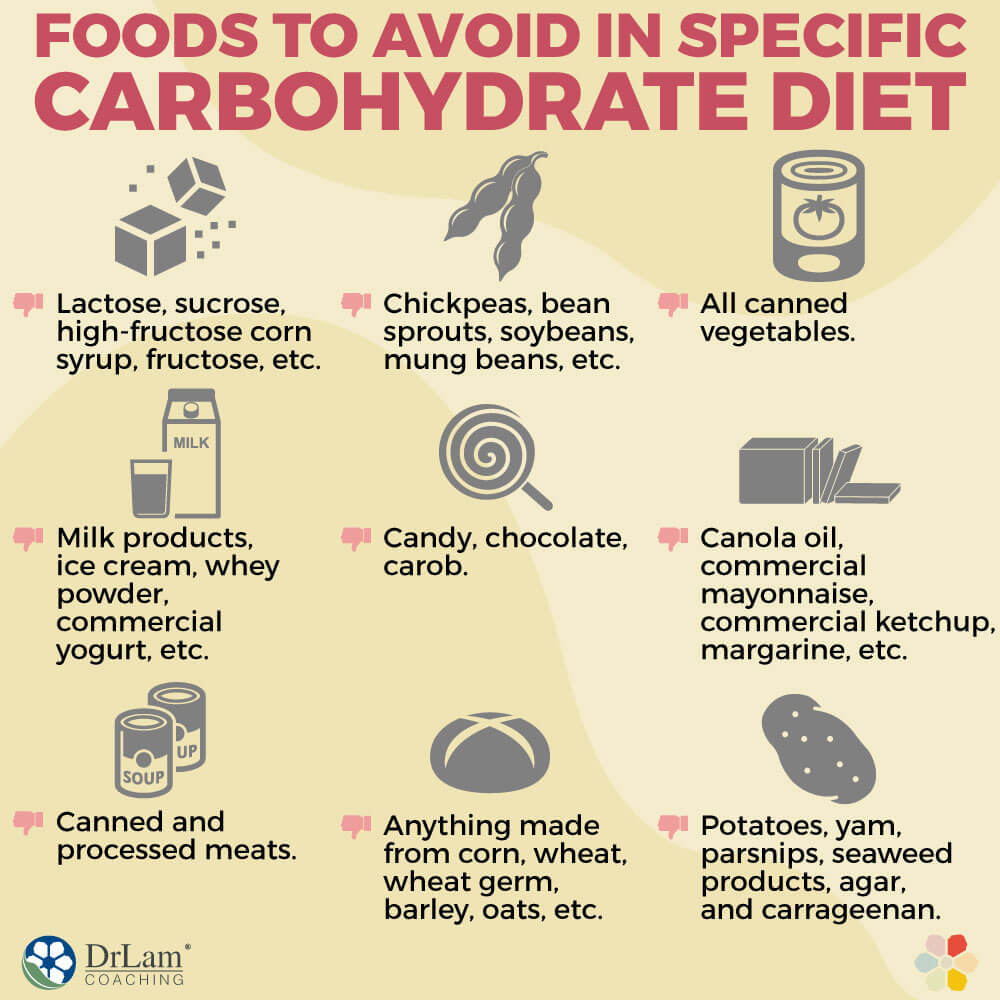 Digestive disorders can be extremely uncomfortable and difficult to manage. They can severely impact your quality of life and your overall health. Digestive disorders can also make it impossible for your body to absorb the nutrients you need to function properly. They can result in deficiencies and even malnutrition. And they can cause a lot of ongoing pain and distress. One possible way of alleviating digestive disorders is with a specific carbohydrate diet. If you’re struggling with these types of problems, this diet is worth thinking about.
Digestive disorders can be extremely uncomfortable and difficult to manage. They can severely impact your quality of life and your overall health. Digestive disorders can also make it impossible for your body to absorb the nutrients you need to function properly. They can result in deficiencies and even malnutrition. And they can cause a lot of ongoing pain and distress. One possible way of alleviating digestive disorders is with a specific carbohydrate diet. If you’re struggling with these types of problems, this diet is worth thinking about.
Digestive problems can be a serious health threat for a lot of people. Biochemist Elaine Gottschall was introduced to an early version of the specific carbohydrate diet when her 5-year-old daughter was diagnosed with ulcerative colitis. Her daughter’s subsequent recovery drove Elaine Gottschall to research and refine the diet and eventually release a book about its benefits. The specific carbohydrate diet claims to improve intestinal health and help improve or eliminate digestive disorders. It has been used to address disorders such as irritable bowel syndrome (IBS), Celiac disease, Crohn’s disease, candidiasis, and ulcerative colitis.
This diet is a very strict one that eliminates lactose, sucrose, and grains from your diet. The idea is that certain carbohydrates increase inflammation in people with digestive disorders. The diet claims that specific intestinal microbes use specific types of carbohydrates for energy. When these carbohydrates go undigested because of digestive problems, they cause an overgrowth of bacteria and damage to the small intestine. This damage can result in digestive symptoms, poor nutrient absorption, and immunity impairment. As a result, this diet only includes certain types of carbohydrates that are easy to digest so they won’t linger in the intestine. This includes fructose and glucose, which are absorbed in the first part of the intestine and so don’t reach the potentially dangerous microorganisms deeper in the gut.
Disaccharides, which are sugars that contain two molecules, are banned on the specific carbohydrate diet because they take longer to break down. Certain starches are also banned because they’re incompletely digested. This includes starches that are found in grains and potatoes. The specific carbohydrate diet also prohibits processed foods because they have sugars and starches added to them. If you follow this diet then these restrictions have to be in place for at least six months to alleviate digestive problems before foods can be added back to your diet. This diet plan is very restrictive and difficult to follow. However, it works well for some people in reducing inflammation and symptoms of digestive disorders.
There is some controversy about the specific carbohydrate diet and whether it lives up to its claims. Proponents claim that it improves gut and intestinal health in three important ways:
 The balance of bacteria in your gut is incredibly important for your overall health. Unfortunately, digestive disorders can harm the gut lining, which prevents your stomach from breaking down food properly. Bacteria feed on this undigested food and ferment it, causing additional digestive problems and further impeding digestion and absorption. The specific carbohydrate diet eliminates foods that are difficult to digest, effectively starving these harmful bacteria and helping the gut return to its normal health and functioning.
The balance of bacteria in your gut is incredibly important for your overall health. Unfortunately, digestive disorders can harm the gut lining, which prevents your stomach from breaking down food properly. Bacteria feed on this undigested food and ferment it, causing additional digestive problems and further impeding digestion and absorption. The specific carbohydrate diet eliminates foods that are difficult to digest, effectively starving these harmful bacteria and helping the gut return to its normal health and functioning.This diet is relatively new and there is little evidence supporting its use. Studies have shown that it may improve symptoms and clinical markers of inflammatory bowel disease, but the research is still in its infancy. The specific carbohydrate diet is also very similar to the low FODMAP diet which is often recommended for managing food intolerances and IBS. However, there is no research yet about using this diet specifically for managing these conditions
Digestive problems are extremely common when you have adrenal fatigue. This is because of breakdowns in various circuits in the body as well as the associated high stress levels. These high stress levels are the primary cause of Adrenal Fatigue Syndrome (AFS). When you’re stressed, the NeuroEndoMetabolic (NEM) Stress Response activates to release cortisol and affect other changes that are necessary in times of stress.
Unfortunately, stress is a common chronic complaint in the modern world, resulting in the constant activation of the NEM stress response. The adrenal glands are responsible for secreting cortisol, and when the demand for this stress hormone is consistently and chronically high, they start to break down. This can cause a whole range of symptoms and problems that can be difficult to manage and correct without the right kind of help.
 The gut can quickly become dysfunctional when you have AFS because it’s an integral part of the inflammation circuit. This is the circuit in your body that’s responsible for responding to threats and includes the gut, the immune system, and the microbiome, which is the balance of bacteria in your body. When the inflammation circuit is healthy, these three parts work together to expel intruders and prevent illness.
The gut can quickly become dysfunctional when you have AFS because it’s an integral part of the inflammation circuit. This is the circuit in your body that’s responsible for responding to threats and includes the gut, the immune system, and the microbiome, which is the balance of bacteria in your body. When the inflammation circuit is healthy, these three parts work together to expel intruders and prevent illness.
When you have AFS, the natural balance of this circuit is upset. As the adrenal glands become fatigued, it starts to affect the balance that exists between the three systems in the inflammation circuit. High cortisol levels cause the immune system to go on alert, increasing inflammation. And because cortisol levels will be unstable as long as you have AFS, inflammation can become a big problem in your body.
This problem is exacerbated by the issues that are commonly associated with AFS such as high stress levels, troubling symptoms, a poor diet, and lifestyle factors. The combination results in a very unhealthy situation that your body tries to fix by increasing its inflammation levels even further. But when inflammation becomes chronic, this usually-helpful strategy will start to damage your body.
An inadequate diet, food intolerances, and sensitivities are often a big part of digestive issues with AFS, often resulting in IBS, bacterial overgrowth, constipation, leaky gut, or diarrhea. Any or all of these problems will cause inflammation levels to increase as the body tries to rid itself of whatever is causing the negative symptoms.
As the health of the gut declines because of these issues, it causes imbalances in the other systems in the circuit, causing further dysfunction in the inflammation circuit. Poor digestive health can cause a change in the microbiome of the gut as bad bacteria flourish and overwhelm the good bacteria. This further hampers absorption and digestion and increases the activity of the immune system. This can become a vicious circle of digestive problems, bacterial growth, and immune system overexcitation which can be very dangerous for your AFS and your health as a whole.
If you suffer from these types of digestive issues, then the specific carbohydrate diet may help. According to followers of this diet, it can help rid the gut of undigested food particles that are feeding bad bacteria, encouraging a healthier bacterial balance. This may help to correct leaky gut and bacterial overgrowth. The diet also promises to boost nutrient absorption, which encourages the gut to heal and return to normal functioning.
If this diet works this way for you, this will help the inflammation circuit return to a more natural state of functioning and alleviate some of the symptoms and problems associated with AFS. However, this isn’t the only circuit that’s affected when you have AFS.

The Bioenergetics circuit consists of the thyroid, pancreas, and liver, and it can quickly become unbalanced when you have AFS. These systems are responsible for metabolism, and metabolic derangement often occurs when the bioenergetics circuit malfunctions. This type of malfunction usually occurs in the second or third stages of AFS as the demand for cortisol increases and the adrenal glands start to degrade. By the third stage of AFS, the bioenergetics circuit has been pushed into exhaustion and severe physical issues or even complete debilitation can occur.
This can be a very frightening and even life-threatening experience, and you must seek out properly experienced and knowledgeable help to overcome it. At this stage, changing to a specific carbohydrate diet probably won’t help, as the damage has already been done, and the additional stress will only overload your system. That’s why it’s better to recognize and address the imbalances in the bioenergetics circuit before it gets to this stage.
If your bioenergetics circuit has become dysregulated because of AFS, you may experience hypoglycemia, also known as low blood sugar. When you first become stressed, your body will release more glucose to increase your energy levels. This will cause correspondingly high levels of insulin.
However, as AFS progresses, this starts to change. Cortisol levels will drop because of adrenal fatigue, and the release of glucose will drop as well. The remaining high insulin levels in your body and continued stress can lead to subclinical hypoglycemia. Often, doctors will miss this issue because it presents in an atypical way.
When this occurs, your body won’t be able to get enough energy from the sugar you eat, and your energy levels will drop sharply. At this stage, your body can start burning protein and fat for energy, which is inefficient and requires high cortisol levels to work. As your cortisol levels continue to decline due to adrenal fatigue, this can leave you constantly exhausted and without the energy to function as normal.
Thyroid and pancreas malfunctions also impact the liver’s workload and function. No organ or system in the body exists in isolation, so as the other two organs in the bioenergetics circuit degrade, the liver will naturally become unbalanced. When the brain senses low blood sugar levels, it will stimulate the liver to release more glucose into the blood. But as the liver starts to suffer from overwork, this measure may prove unsuccessful. This can severely affect the health of your brain, which is dependent on glucose for everyday functioning.
 The specific carbohydrate diet may benefit the bioenergetics circuit in several ways. If implemented early, it could help to rebalance the circuit and avoid more serious problems that can occur as this circuit degrades. Here’s how the diet can improve the health of each part of this circuit:
The specific carbohydrate diet may benefit the bioenergetics circuit in several ways. If implemented early, it could help to rebalance the circuit and avoid more serious problems that can occur as this circuit degrades. Here’s how the diet can improve the health of each part of this circuit:
The specific carbohydrate diet could help each organ in the bioenergetics circuit individually. These organs are tightly connected and reliant on each other for proper functioning. So, as the health of each improves, it will naturally help the others return to normal functioning as well. This will help to rebalance the bioenergetics circuit, which will improve the health of your body and reduce your overall stress levels, decreasing the demand on your adrenal glands so they have time to heal.
The specific carbohydrate diet has fairly strict rules about what you can and can’t eat. Some of the guidelines you will need to follow on this diet are:

The foods to avoid are even longer, which is what makes this diet so hard to follow. On the specific carbohydrate diet you must avoid:

The specific carbohydrate diet does have a couple of problems. First and foremost, it is very strict and hard to follow. It bans several foods that are very common in a western diet and can be difficult to follow for a prolonged period. If you eat out, travel, or just don’t like to spend a long time choosing and preparing food, you may have trouble sticking to this diet.
Another issue is with the severe restrictions on the types of food you can eat in this diet. Whole food groups like grains and dairy are mostly banned and this can easily lead to deficiencies and malnutrition. You can take supplements to try and make up for these restrictions, but the nutritional balance in supplements is never as good for your body as the natural balance of vitamins in real food. This diet may be even more problematic for children and teenagers, who need a good nutritional balance during the developmental period. This is another reason why you should only try the specific carbohydrate diet under the supervision of a trained medical professional.
If you have AFS, then you need to be very careful when you make any changes to your diet or lifestyle. AFS can cause your system to become oversensitive, reacting badly to any changes. So even if the changes you’re making are designed to improve your health, it may have negative effects on your body or worsen your AFS symptoms. Any problems that you experience will also increase your stress levels, increasing the demand for cortisol and worsening your adrenal fatigue. That’s why you should get the advice and help of someone who understands AFS and your individual condition before you try the specific carbohydrate diet.
Even if you’re relatively healthy, digestive disorders can wreak havoc on your quality of life, your health, and your wellbeing. But if you have AFS, then they can be absolutely devastating. If you want to alleviate the inflammation, pain, and stress that these problems can cause, then consider making the change to a specific carbohydrate diet. Just make sure that any changes you make are with the advice and assistance of a trained medical professional who can advise you on the safest way to make this change without causing additional problems with your AFS.
The specific carbohydrate diet is designed to improve and even completely eliminate digestive problems like IBS and ulcerative colitis. It’s based on the idea of restricting certain types of carbohydrates that may upset your stomach and cause troubling digestive symptoms.
